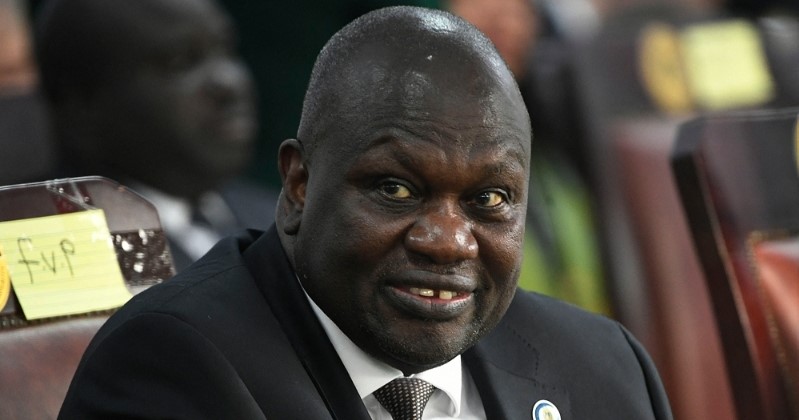A political analyst and political science lecturer at the University of Juba, Dr. Abraham Kuol Nyuon, has raised significant concerns over the SPLM-IO’s abrupt withdrawal from the Nairobi peace talks.
South Sudanese First Vice President Riek Machar announced on Wednesday that the main opposition group, the Sudan People’s Liberation Movement in Opposition (SPLM-IO), which he leads, has pulled out from the Kenya-led Tumaini peace initiative.
Machar, a principal of a fragile 2018 peace deal, said the new initiative is undermining the existing agreement and the country’s sovereignty. The withdrawal adds to fissures between parties loyal to Machar and President Salva Kiir that have dragged out the implementation of the 2018 agreement.
Earlier this week, the transitional government and the holdout groups in Nairobi signed eight protocols encompassing security, ceasefire, communal violence, arms proliferation, land disputes, trust-building, humanitarian access, and the role of guarantors.
Speaking to Radio Tamazuj on Wednesday, political analyst Dr. Kuol Nyuon cautioned that Dr. Machar’s withdrawal from the Nairobi talks could significantly derail the efforts towards peace in South Sudan.
The don, who has been closely monitoring the peace process, stressed that the Tumaini (hope) Initiative in Nairobi represented the last opportunity to revitalize the wavering agreement between Kiir and Machar.
“In the absence of scheduled elections by December this year, the Tumaini Initiative, once endorsed by all parties, holds the potential to breathe new life into the 2018 peace agreement,” Dr. Nyuon stated.
“However, the decision by SPLM-IO to withdraw poses a serious threat, given their pivotal role in determining the extension and the efficacy of the agreement,” he added.
The SPLM-IO’s Political Bureau convened in Juba on Tuesday, where it unanimously voted to exit the Kenya-mediated negotiations. The opposition faction cited dissatisfaction with recent protocols, accusing the talks of deviating from their original objectives.
Of particular concern is the proposed National Leadership Council (NLC), which SPLM-IO fears could wield unchecked authority and potentially overshadow constitutional bodies such as the Presidency, the Council of Ministers, the National Legislature, and the National Security Council.
The Deputy Chairperson of the South Sudan Civil Society Alliance and a member of the Ceasefire and Transitional Security Arrangements Monitoring and Verification Mechanism (CTSAMVM) Board, Dabek Mabior Arok, cautiously welcomed the initialing of the eight protocols but stressed the need for the alignment with the revitalized peace agreement.
“We urge the chief mediator to address the SPLM-IO’s concerns and foster reconciliation among all stakeholders,” Arok emphasized.
“The Tumaini Initiative must complement and reinforce the existing peace framework, not operate independently,” he added.
Arok highlighted the intricate nature of achieving sustainable peace in South Sudan, underscoring the necessity of sustained dialogue and compromise among all parties.




